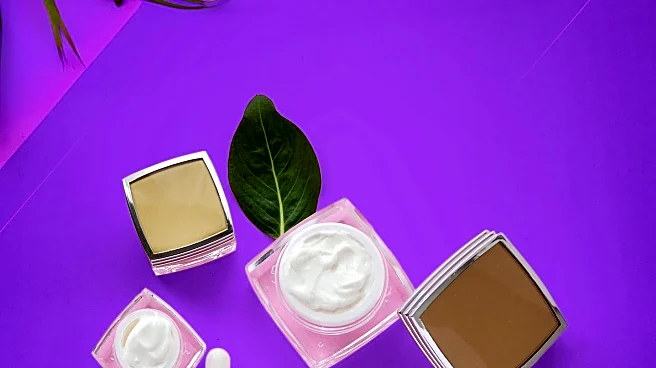What's Happening?
Sephora employees are increasingly concerned about the skincare choices of tween shoppers, driven by beauty influencers on platforms like TikTok. These young consumers are often seen purchasing products with potentially irritating active ingredients, posing significant dermatological risks. A study by Northwestern University highlights that skincare routines shared by teens and tweens on social media contain an average of 11 potentially irritating ingredients. Despite warnings from Sephora staff, parents often acquiesce to their children's demands, influenced by online trends. This phenomenon has led to a decline in sales for brands like Drunk Elephant, which are perceived to have lost touch with their adult customer base.
Why It's Important?
The trend of young consumers engaging with high-end skincare products raises concerns about the long-term impact on their skin health and the beauty industry's marketing practices. The influence of social media on purchasing decisions highlights the blurred lines between advertising and content, particularly for impressionable audiences. This situation underscores the need for clearer product labeling and potential regulatory measures to protect young consumers. The beauty industry faces a challenge in balancing marketing strategies with ethical considerations, as targeting younger demographics could lead to overconsumption and environmental waste.
What's Next?
There may be increased scrutiny on the beauty industry's marketing practices, particularly regarding products targeted at younger consumers. Lawmakers like California assemblymember Alex Lee have attempted to introduce legislation to restrict the sale of certain skincare products to minors, though these efforts have faced opposition from industry groups. As the trend continues, beauty brands may need to adapt their strategies to address ethical concerns and consumer safety, potentially leading to the development of products specifically designed for young skin.
Beyond the Headlines
The rise of 'Sephora kids' reflects broader societal pressures on young people to conform to beauty standards perpetuated by social media. This trend raises questions about the role of parents and educators in guiding children's consumption habits and the responsibility of companies to market products ethically. The situation also highlights the potential for long-term shifts in consumer behavior, as young people develop brand loyalty from an early age.










